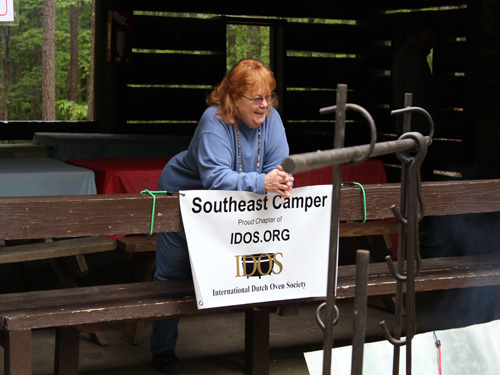Leave No Trace
Read and understand the regulations and concerns of the area you are visiting. Restrictions are based on past abuse by others and the special conditions or needs of that area.
Camp and / or travel in smaller groups. They are quieter and have less impact on your surrounding area.
Avoid the popular areas during heavy use times.
Learn how to properly store your food to protect it from bears and other animals.
Repackage food to minimize waste.
Travel and Camp on Durable Surfaces
Damage to land occurs when visitors trample vegetation or communities of organisms beyond recovery. The resulting barren areas develop into undesirable trails, campsites, and soil erosion.
In high-use areas, campers should concentrate their activities where vegetation is already absent. Minimize resource damage by using existing trails and selecting designated or existing campsites.
In more remote, the less traveled areas, campers should generally spread out. When hiking, take different paths to avoid creating new trails that cause erosion. When camping, disperse tents and cooking activities and move camp daily to avoid creating permanent looking campsites and dead zones. Always choose the most durable surfaces available: rock, gravel, dry grasses, or snow.
Pack Out, What You Pack In
This simple saying motivates backcountry visitors to take their trash home with them. It makes sense to carry out materials taken there by you and others. Minimize the need to pack out food scraps by carefully planning meals. Accept the challenge of packing out everything you bring. If you see something on the ground and you know it does not belong, be nice, pick it up and pack it out.
Dispose of Waste Properly
Backpackers & Hikers create body waste and waste water that require proper disposal.
Our waste water contaminates natural water sources. Strain food particles from waste water and pack it out, properly dispose of dishwater by dispersing at least 200 from any water source, lakes, streams, etc. Use biodegradable soap 200 feet or more from any water source.
The proper disposal of human waste helps prevent the spread of disease and exposure to others. Dig a small hole 6 to 8 inches deep and 200 feet from water, trails, and campsites are often the easiest and most practical way to dispose of feces. Cover hole back with dirt and cover with leaves to minimize any sign of man.
Leave What You Find
Leave rocks, plants, animals, archaeological artifacts and other objects as you find them. It may be illegal to remove artifacts. Minimize site alterations, such as digging tent trenches, hammering nails into trees, tying ropes to trees, permanently clearing an area of rocks or twigs.
Remember to: “Look with your Eyes, Not with your Hands”
Minimize Use and Impact of Fires
Use lightweight camp stoves, instead of fires, because the naturalness of many areas has been degraded by overuse of fires and the increasing demand for firewood. If a campfire is constructed, use an existing fire ring in a well-placed campsite or to use a fire pan or mound fire. True Leave No Trace fires show no evidence of having ever been constructed.
Respect Wildlife
If enough people approach or interfere with wildlife, it can be disruptive to animal populations. Do not approach wildlife, use binoculars, no matter how small, it is still a wild animal. DO NOT FEED THE ANIMALS!
Be Considerate of Other Visitors
By following hiking etiquette and maintaining quiet allows visitors to go through the wilderness with minimal impact on other users. Choose hiking, backpacking, and camping gear and clothing that are natural earth tone colors like green, brown, tan, or black and reduce your visual impact. Most people get back to nature for solitude and others like the sounds that nature provides. Refrain from radios and television or use headphones please.
Camp Master

